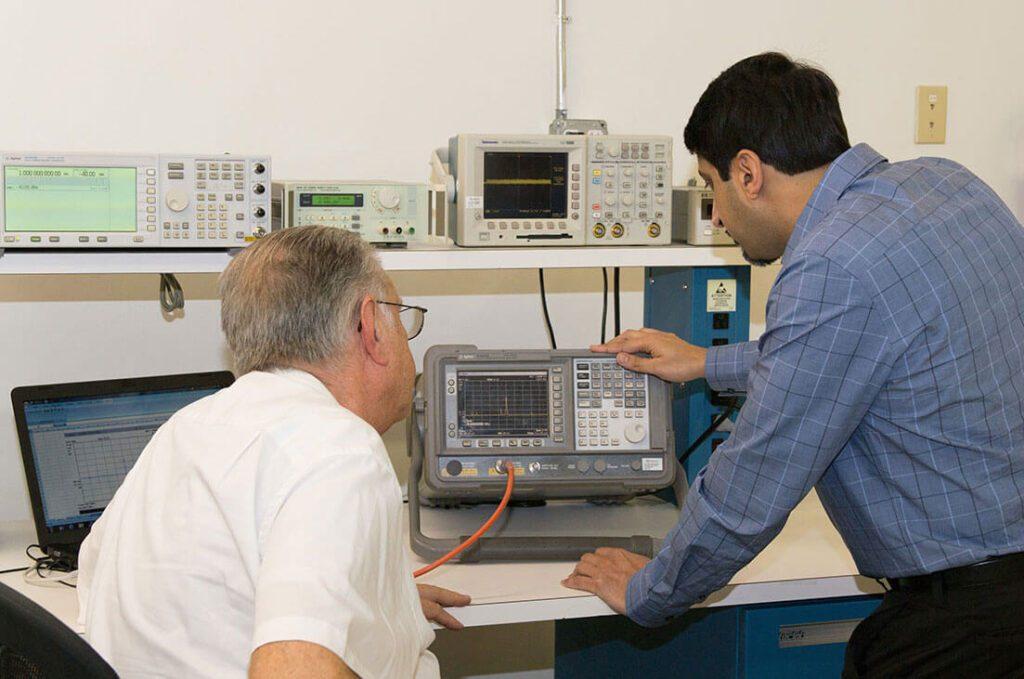Introduction
If you're planning to sell or import electronic products in the United States, FCC certification is not just a formality—it's a legal requirement. The Federal Communications Commission (FCC) ensures that all electronic devices that emit radiofrequency (RF) signals comply with standards that protect public safety and avoid interference with other devices.
This article explains everything you need to know about FCC certification, including what it is, who needs it, the certification process, and how to ensure compliance.
What Is FCC Certification?
FCC certification is a mandatory approval granted by the Federal Communications Commission to electronic devices that emit radiofrequency energy. This includes products like smartphones, Wi-Fi routers, Bluetooth devices, laptops, TVs, and more.
The goal is to ensure these devices:
-
Don’t interfere with other electronic or communication systems.
-
Meet limits on electromagnetic emissions to protect health and safety.
-
Operate effectively within the allocated frequency bands.
Why Is FCC Certification Important?
-
Legal Requirement
Selling non-certified devices in the U.S. is illegal and can result in fines, recalls, or bans. -
Consumer Safety
It ensures that the device doesn’t expose users to unsafe levels of RF radiation. -
Market Trust
An FCC label boosts consumer confidence and credibility in your brand. -
Interference Prevention
Certified devices are tested to minimize signal interference with other systems.
Who Needs FCC Certification?
FCC certification is required for:
-
Manufacturers: Anyone manufacturing RF-emitting electronic products.
-
Importers/Distributors: Entities bringing electronic goods into the U.S.
-
Retailers: Selling non-compliant products can lead to legal issues.
If your product uses Bluetooth, Wi-Fi, ZigBee, RFID, cellular modules, or any type of wireless communication, it likely needs FCC certification.
Types of FCC Authorization
The FCC has three main types of equipment authorization:
1. Certification (Grants of Certification)
-
Most stringent.
-
Required for high-risk devices (e.g., mobile phones, routers).
-
Involves third-party testing by a Telecommunication Certification Body (TCB).
2. Declaration of Conformity (DoC)
-
Used for devices like PCs or TV receivers.
-
Requires testing in accredited labs but no TCB involvement.
3. Verification
-
For devices with minimal RF emissions.
-
No lab accreditation or FCC filing needed.
-
Mostly for internal-use components.
Note: Since November 2018, DoC and Verification have been merged into SDoC (Supplier’s Declaration of Conformity).
FCC Certification Process: Step-by-Step
Step 1: Determine Applicability
Check if your product emits RF energy. If it does, FCC rules likely apply.
Step 2: Testing the Product
Send your product to an FCC-accredited lab for EMC (electromagnetic compatibility) and RF testing.
Step 3: Documentation Preparation
Prepare the following:
-
Test reports
-
Product details
-
Schematics
-
User manual
-
RF exposure evaluation
Step 4: Submit to a TCB (if applicable)
The TCB reviews documentation and issues a Grant of Equipment Authorization if your product passes.
Step 5: Labeling
Add the FCC ID label to your product. It should be easily visible and permanently affixed.
Step 6: Maintain Compliance
Keep records for 10 years and ensure any product changes remain compliant.
How Much Does FCC Certification Cost?
-
Testing Fees: $5,000 – $15,000 depending on complexity
-
TCB Fees: $1,000 – $3,000
-
Time Required: 4–8 weeks typically
Tip: Combine FCC with CE, IC, or RoHS certifications to save time and cost if you're targeting multiple regions.
FCC Labeling Requirements
Devices must display:
-
FCC ID: Assigned by the FCC (e.g., 2ABCD-123456)
-
Compliance Statement (for SDoC)
-
User Manual Notice about RF compliance and interference risks
Common Products That Require FCC Certification
-
Smartphones
-
Tablets
-
Smartwatches
-
Wireless speakers
-
Baby monitors
-
Drones
-
RF remotes
-
Smart home devices
Penalties for Non-Compliance
Selling non-FCC-certified devices can result in:
-
Fines up to $16,000 per day per violation
-
Product seizures or recalls
-
Import bans
-
Legal actions and reputation damage
FCC Certification vs. CE Marking
| Feature | FCC Certification | CE Marking (EU) |
|---|---|---|
| Region | United States | European Union |
| Focus | RF interference & safety | Product safety & EMC |
| Testing | Accredited U.S. labs | Manufacturer/self-tested |
| Label | FCC ID | CE logo |
Tips for Smooth FCC Certification
-
Work with experienced labs or consultants
-
Use pre-certified RF modules
-
Plan early during product development
-
Design for EMC compliance upfront
-
Keep detailed documentation
Conclusion
FCC certification is an essential step for bringing wireless and electronic products to the U.S. market. It not only ensures regulatory compliance but also builds trust, enhances marketability, and protects public safety. Whether you're a manufacturer, importer, or retailer, understanding and following the FCC process will save you time, money, and potential legal trouble.
If you're launching a new product, start your FCC certification journey today—it’s your ticket to a compliant and successful U.S. launch.
FAQs
❓ Is FCC certification mandatory?
Yes, for all RF-emitting devices sold in the U.S.
❓ How long is FCC certification valid?
Indefinitely, unless the product is modified.
❓ Can I self-certify my product?
Only under the SDoC pathway for certain devices.
❓ What happens if I don’t get FCC certification?
You risk fines, product bans, and legal liability.

